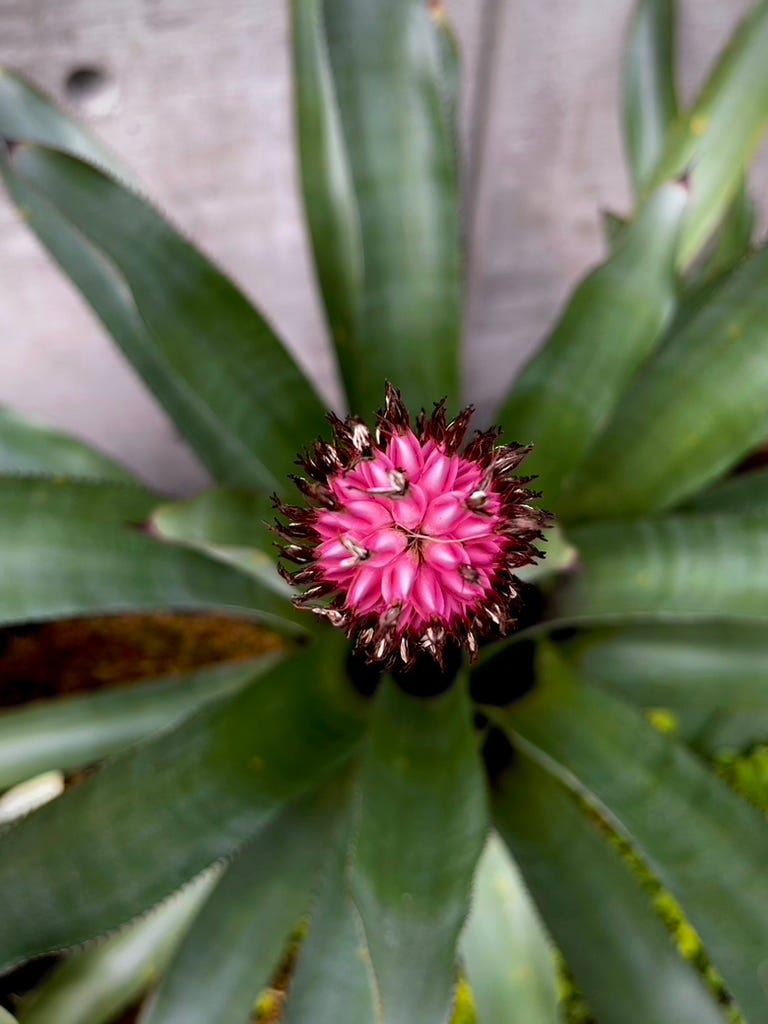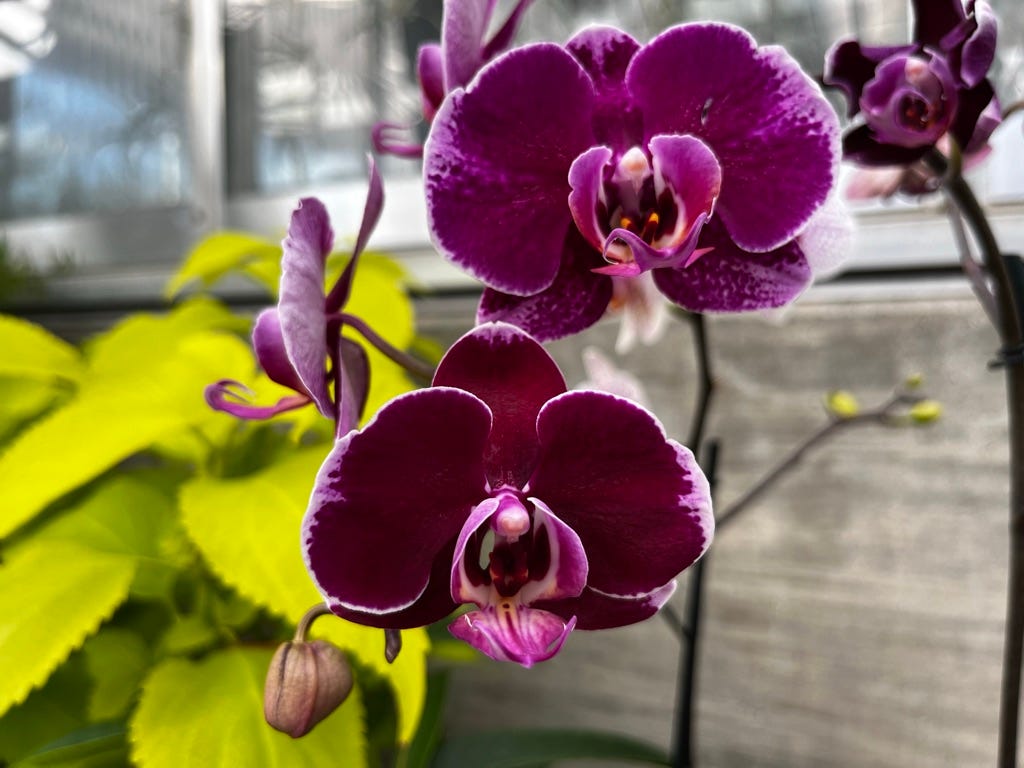Notes About Nothing #1
Offloading some neural tidbits on a somewhat regular basis so I don't have to panic as much about longer posts
Some of my favorite newsletters have specific editions where the writers share things they’ve recently come across that caught their attention, brought them joy, made them think, or helped them in subtle or not-so-subtle ways. Looking at you, 5-Bullet Friday and Recomendo.
I personally love receiving these and have discovered some awesome things—books, movies, gadgets, quotes, tools, hacks, songs, etc—as a result. Sometimes nothing resonates and that’s OK. We’re all unique human beings and if we all had the same tastes life would probably be a lot less interesting. It's why I never really understood why some people act really surprised if someone else hasn’t seen something, tried something, or enjoyed something to the exact same degree that they have. We all see, try, and enjoy our own things, and frankly, that’s beautiful (unless you don’t like Money Heist). That being said, there’s definitely some magic in the occasional overlap, and even if only 0.1% of people find some intrigue in that which you find intriguing… well, that’s like 7.9 million people who might be down to join your future book club.
Anyway, I figured I’d try my hand at somewhat of a weekly recap of things I came across, noticed, learned, thought about, laughed at, all of the above… you get the gist. I’m pretty much ripping off the newsletters I linked to above but the great part about these types of things is that because of the wonderfully unique lens through which we all take in our worldly experiences, the things that we consider worth sharing will almost always be different. I’ll try and share these Notes About Nothing on a somewhat regular basis, with longer, less scattered posts (hopefully) getting sprinkled in. Let’s get to it! Here are some shareables from the past week or so.
Readable: The Remarkable Ways Our Brains Slip Into Synchrony
I loved this article about how the way you feel, think, and act can be directly influenced by who you are interacting with or sharing space with. Anytime you tell me a story, my brain actually starts to show similar activity to the things going on in your brain! Think about how much subtle information we are picking up from those around us… “high-vibe” individuals can start to make more sense (or “the vibe was just weird”). Still thinking about this quote:
This fluid back-and-forth sharing of information between you and other people is often so dense that it can be difficult to safely treat you and them as separate systems. If a tool that enhances your capabilities can become an extension of “who you are,” what about another person who enhances your capabilities? The information that makes you who you are includes not just the information carried inside your brain, body, and nearby objects but also the information carried by the people around you.
You’re going to hear a lot about Buddhist principles in this blog because it’s a subject that I love exploring as an increasingly devoted meditator. But this concept of brain harmony and syncing your behavior with others—consciously or subconsciously—points to the Buddhist concept of not-self. Where do I begin and end as a “self”? When you feel sad and we talk, I am likely to feel your sadness to a degree. At that moment, where is the border between you and me? Between you and the air you breathe? If the water you just drank (and is now somewhat “part” of “you”) will someday end up in a cloud, does the cloud contain part of you? Definitely more on this to come in the future.
This article also somewhat reinforces the timeless cliché of “you are the average of the five people you spend the most time with.” However, it points to even more subtleties regarding eye movements and posture that expand the realm of interconnectedness! Thanks, Michael J. Spivey.
Quotable: Adam Grant
I love Mr. Grant (great on Twitter, stellar books, and loved him on the Rich Roll Podcast). I recently stumbled across this quote of his and it stuck:
It’s a sign of wisdom to avoid believing every thought that enters your mind. It’s a mark of emotional intelligence to avoid internalizing every feeling that enters your heart.
Not easy these days—to say the least… but another example of how not clinging to everything we come across has its benefits. We should expose ourselves to different ideas, perspectives, and modalities, but we don’t have to subscribe to them.
Watchable: Station Eleven
I am three episodes deep and very much enjoying another creative banger from the team at HBO. Pandemic vibes may not be everyone’s cup of tea right now, but the show is less about the pandemic and more about the mysterious “then-and-now” jumps that the scenes take to help develop each character. Miss you already, Succession and White Lotus.
Photogenic: Orchids
I recently took to the Denver Botanic Gardens with the people I love the most and we were treated to an indoor Orchid mindfulness-based exhibit. It over-delivered, to say the least. Did you know orchids can live to over 100 years old and have the smallest seeds on the planet (that we know of)? Here are a few #ShotoniPhone images for ya
Moment of “Woah”: Front-of-package endorsements on food products
This one is a bit more niche but it comes from my U.S. Agricultural Policy class this week, where we learned about the history of food regulation in the U.S.
Recognize any of these (or the thousands of other examples that seeing these might trigger in your mind)? Turns out, these front-of-package endorsements of nutritional quality only started to be a thing in 1995. That means my generation is one of the first to have spent our entire lives of the presence of these kind-of-insane health claims on the front of every food imaginable. I don’t know about you, but I felt pretty good about how heart-healthy I was being when I was eating Honey Nut Cheerios by the box as a kid… how might that change how my generation approaches food and health versus someone who saw these labels as an entirely new thing? Food for thought..
Listen-able: Dr. Alia Crum on the Science of Mindsets for Health & Performance
Huge fan of the Huberman Lab Podcast in general, and this episode didn’t disappoint. An interesting deep dive into how our mindsets can directly affect our physiological responses to food, exercise, stress, and more.
.
.
.
That’s all for now! Hopefully, this becomes a regular thing and people can comment on things they liked and tidbits that popped into their head when viewing these!
Peace, plants, and love to all beings, without exception =)






